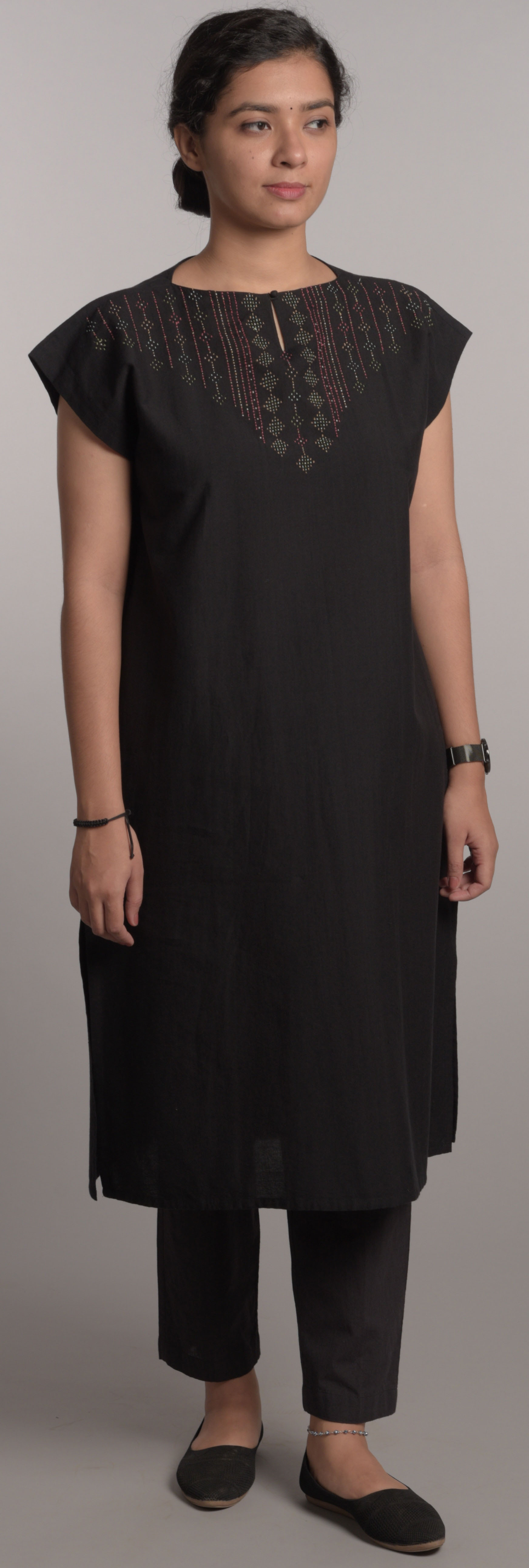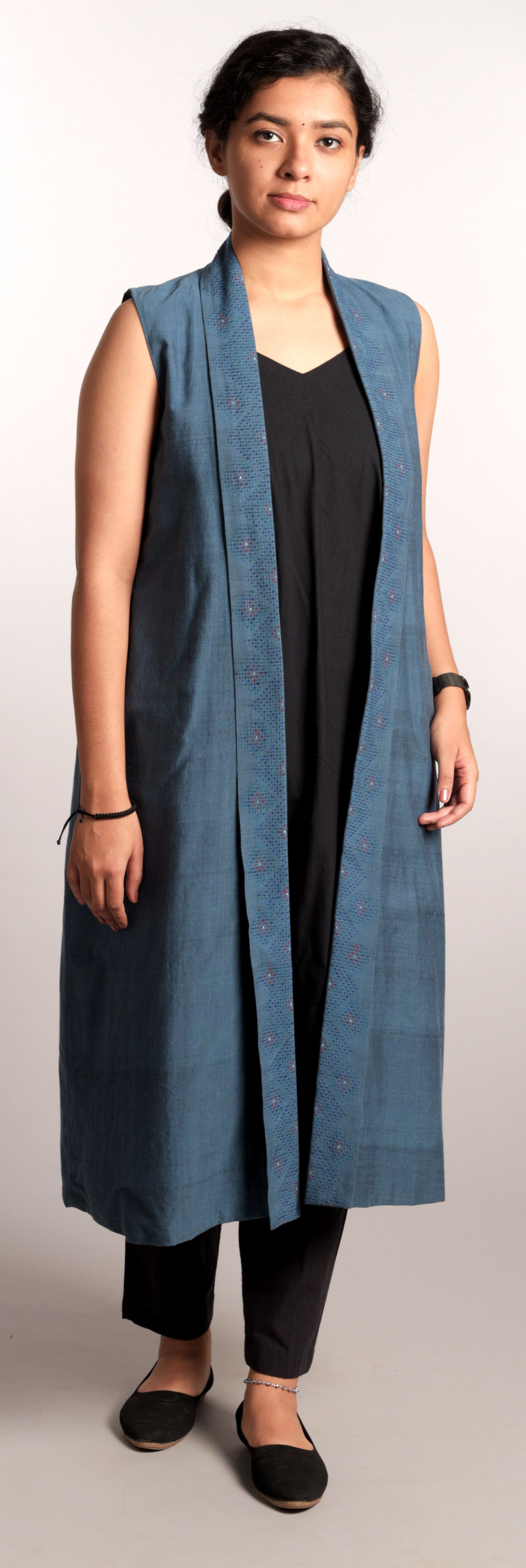
As a textile designer, my passion lies in working with handlooms and handicrafts deeply rooted in our culture and tradition. I have honed my skills in apparel design during my studies at the National Institute of Design (NID). This comprehensive course gave me a profound understanding of design processes and a keen attention to detail. At NID, the curriculum entails two years of academic study and sponsored graduation projects in collaboration with professionals. This approach allows students to enhance their learning while gaining practical experience. The duration of the graduation project typically spans 4-6 months. ‘KAP’ emerged as a platform with a clear vision of creating beautifully crafted products that resonate with customers and embody the philosophy of eco-friendliness and handcrafted simplicity. The initial brief from the founder of ‘KAP’, Mrs Krishna Amin-Patel, was to design a collection of women’s wear that reflects the traditional craft and minimal or zero waste techniques. After carefully considering the possibilities of integrating tangalia (dana weaving) with ‘KAP’s ethos, I recognised the need to work closely with tangalia artisans to align their traditional motifs with current market requirements and explore new possibilities for product diversification. To ensure the collection resonated with customers, I conducted surveys, research, and gathered feedback to inform the design process. The resulting collection of garments, woven using tangalia techniques, incorporates engineered designs and minimal cut/zero waste principles as core aspects. This outcome fulfils the vision set by the sponsor and contributes to the weavers’ development, empowering them for a better future. For the upliftment of the artisans, it is crucial to focus on their skill development and economic empowerment. Through this collaboration, ‘KAP’ aims to provide the weavers with opportunities to learn new techniques, adapt traditional motifs to contemporary trends, and improve their livelihoods.



